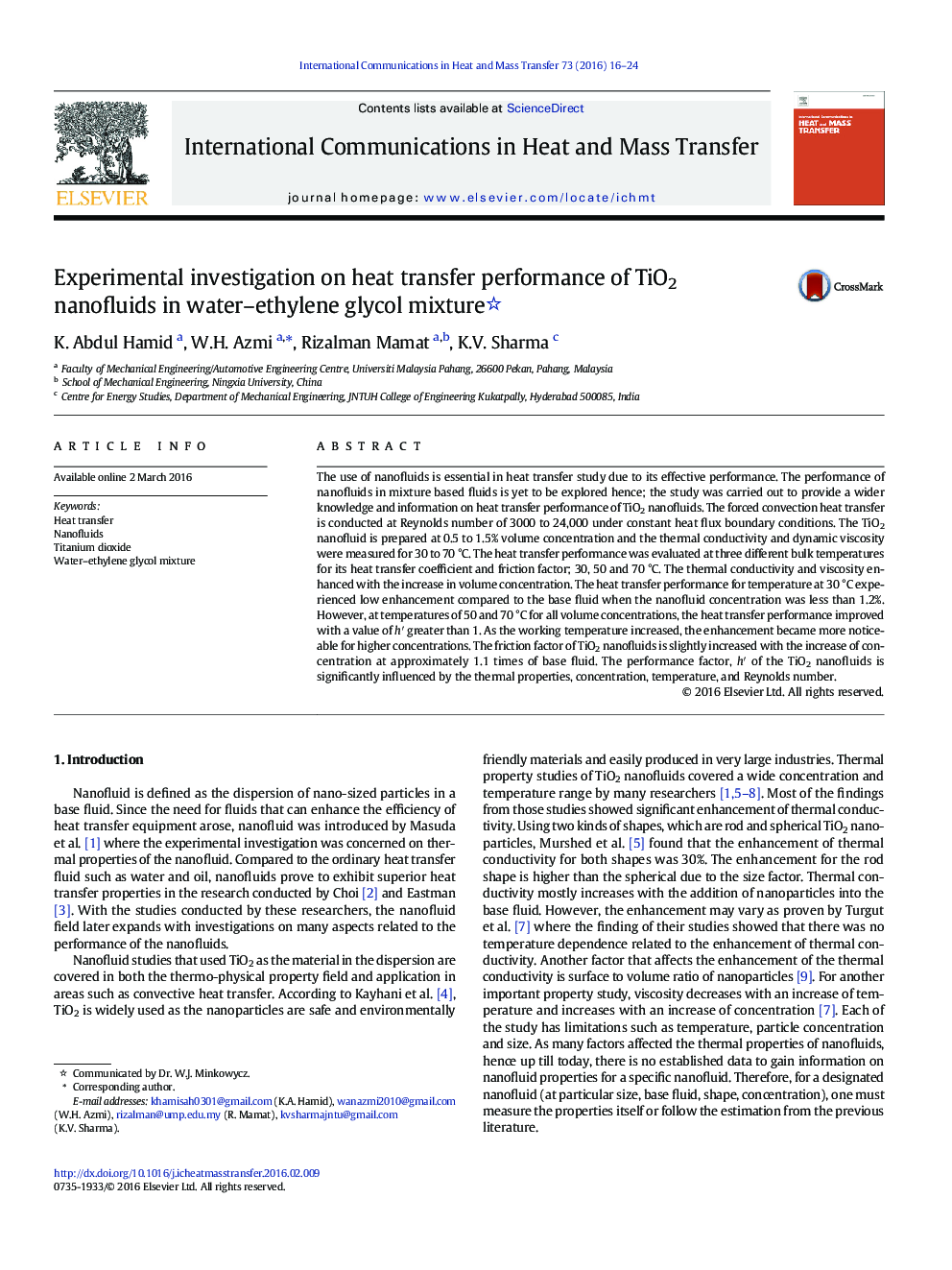| Article ID | Journal | Published Year | Pages | File Type |
|---|---|---|---|---|
| 652884 | International Communications in Heat and Mass Transfer | 2016 | 9 Pages |
The use of nanofluids is essential in heat transfer study due to its effective performance. The performance of nanofluids in mixture based fluids is yet to be explored hence; the study was carried out to provide a wider knowledge and information on heat transfer performance of TiO2 nanofluids. The forced convection heat transfer is conducted at Reynolds number of 3000 to 24,000 under constant heat flux boundary conditions. The TiO2 nanofluid is prepared at 0.5 to 1.5% volume concentration and the thermal conductivity and dynamic viscosity were measured for 30 to 70 °C. The heat transfer performance was evaluated at three different bulk temperatures for its heat transfer coefficient and friction factor; 30, 50 and 70 °C. The thermal conductivity and viscosity enhanced with the increase in volume concentration. The heat transfer performance for temperature at 30 °C experienced low enhancement compared to the base fluid when the nanofluid concentration was less than 1.2%. However, at temperatures of 50 and 70 °C for all volume concentrations, the heat transfer performance improved with a value of h′ greater than 1. As the working temperature increased, the enhancement became more noticeable for higher concentrations. The friction factor of TiO2 nanofluids is slightly increased with the increase of concentration at approximately 1.1 times of base fluid. The performance factor, h′ of the TiO2 nanofluids is significantly influenced by the thermal properties, concentration, temperature, and Reynolds number.
